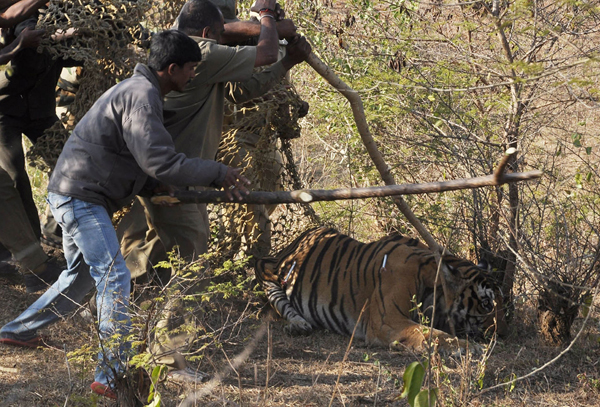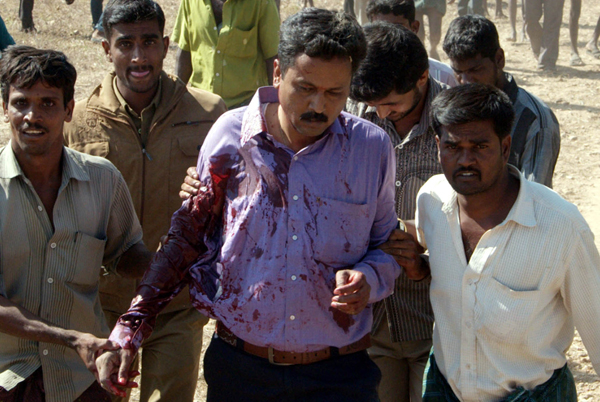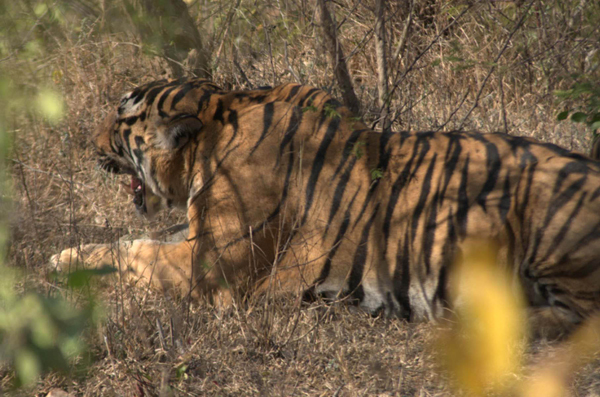
Mysore, Jan 18: A tiger has attacked and injured a freelance wildlife photographer G S Ravishankar in Mysore on Thursday. Ravishankar is out of danger and he is being treated at Krishna Rajendra hospital in Mysore.
Ravishankar along with other photojournalists visited the Heggadadevana Kote following an operation to catch the tiger which has strayed into human habitat.
The big cat pounced on 40-year-old photographer while he was taking still of the tiger from a close range. Thanks to villagers of Manchanayakanahalli who were at the spot immediately rushed to his rescue and pulled him out from the jaws of death.
The Thursday's incident has exposed how serious were our police and forest officials while carrying out an operation to catch the big cat. Local residents accused the authorities of not taking precautionary measures during the operation resulting in the incident which could have proved costly.
According to forest authorities, the tiger had attacked Basavaiah, 65, a villager while he was returning home Penjahalli along with his cow on the evening of Wednesday. Luckily, he survived the attack but his cow was mauled to death. He had told villagers and officers that it was leopard.
Hospital's medical superintendent Dr B S Sagar told TOI Ravishankar has sustained injuries on his right hand and chest region. His wounds have been washed and sutured. He is out of danger. Even Basavaiah who has suffered injuries on his back is recovering. Both are undergoing treatment at the hospital.
Tiger caught
Following an attack on Basavaiah, forest officials launched operation rescue on Thursday. During the operation, when Ravishankar visited the spot and unaware of the consequences, the freelance photographer went close to the ground zero only to be attacked. Then he was shifted to hospital.
Authorities who continued the operation nabbed the tiger after tranquilizing around 5.30 pm.
When contacted PCCF Dipak Sarmah, who is Karnataka chief wildlife warden, said the fully grown male tiger may have strayed out of forest following territorial fight. As the tiger was healthy and there was no injury on it, I directed authorities concerned to leave it back into the woods.







Comments
Add new comment